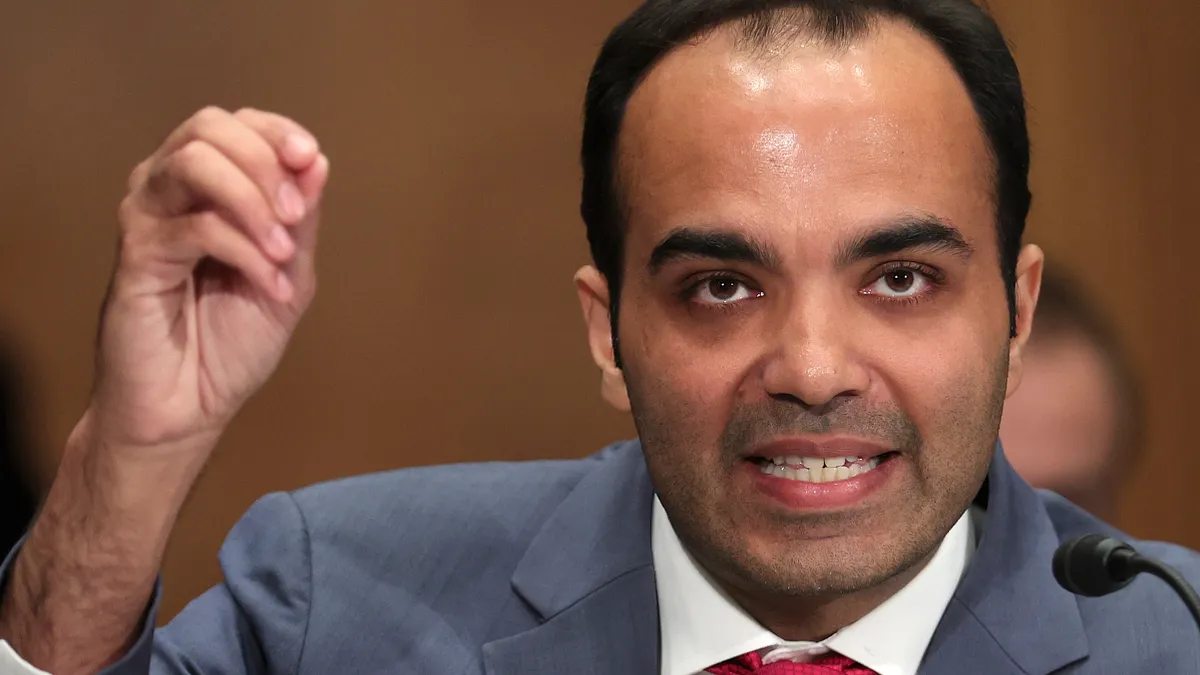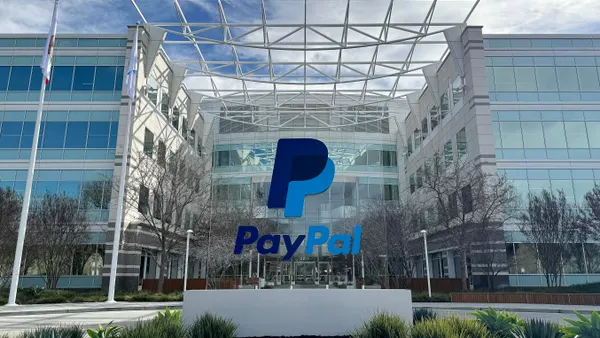Consumer Financial Protection Bureau Director Rohit Chopra reminded players in the payments and banking industries this week that some of them are in his agency’s cross-hairs.
Chopra in a July 11 blog post reiterated industry practices that his agency considers troublesome and ripe for regulatory action. He framed the agency’s agenda as part of President Joe Biden’s effort to crack down on anticompetitive business practices. He noted three areas that have attracted the agency’s attention, and not in a good way.
One of the areas of CFPB focus is on the concentration of power that has occurred with respect to “core service providers,” including FIS, Fiserv, Jack Henry and Finastra. He noted those four payments processors collectively service 78% of the nation’s banks. In catering to mainly small local banks, Chopra expressed concern about the negative impact those payments processors’ practices may be having on local communities.
“These platforms can limit flexibility and raise costs for many small financial institutions seeking to fairly compete,” he said in the July 11 blog post.
The four companies didn’t immediately provide a response to a request for comment.
Back in April, when he called out his concern about the core service providers at a Community Bank Advisory Council and Credit Union Advisory Council meeting, Chopra said the agency might potentially refer complaints “to other law enforcement agencies.” Specifically, he called out those payments processors’ high costs, numerous contracts and poor client satisfaction feedback.
“The consolidation of the providers among these four is affecting service and cost – with one community bank CEO aptly framing the problem as ‘stand-in-line and write a big check,’” he said at the meeting. “In an age of constant tech innovation, with many younger consumers craving digital banking solutions, patience is not a viable solution.”
Another area of CFPB interest concerns consumers’ ability to switch between credit card providers or refinance debts with other credit providers. As a part of that inquiry, Chopra noted his agency’s May announcement focused on consumers’ ability to get lower-rate offers.
Specifically, the agency is reviewing the extent to which some credit card issuers are suppressing consumer payment information sent to credit bureaus. “We have asked the nation’s largest credit card issuers about a change that occurred across the industry that is undermining the ability for consumers to get lower-rate offers from competitors,” he said.
Finally, he emphasized that the agency is pressing ahead with a campaign against junk fees.That includes credit card late fees that burdened Americans with $12 billion in fees in 2020, debt collector fees that may be unlawful and bank overdraft as well as insufficient funds fees, the agency has said.
While Chopra’s blog was a recap of inquiries and investigations that the agency has underway, it was noteworthy in that the director authored the post himself as opposed to a staff member writing it. While he contributes about a post per month, he doesn’t typically remind the industries of the ways in which they’re being scrutinized.












